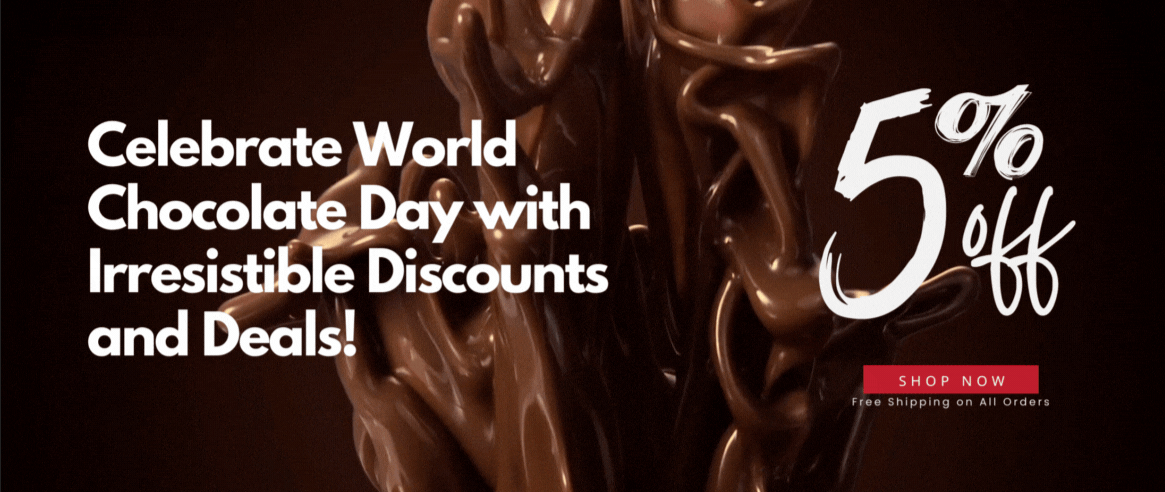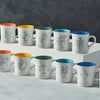World Chocolate Day: Celebrating the Sweetness on 2024

Chocolate, a universally adored treat, has been captivating taste buds for centuries. From its humble beginnings as a bitter beverage in ancient Mesoamerican civilizations to its modern-day incarnation as a symbol of indulgence and pleasure, chocolate has woven itself into the fabric of cultures around the world. On July 7, 2024, we come together to celebrate 1World Chocolate Day, a day dedicated to honoring this delectable delight and its rich history. This blog will take you on a journey through the origins of chocolate, its evolution, its cultural significance, and how you can celebrate this special day.
Explore the Fascinating History and Origins of Chocolate.
Chocolate's story begins over 3,000 years ago in the rainforests of Central and South America. The ancient Olmecs, one of the earliest civilizations in Mesoamerica, were the first to discover the potential of the cacao bean. They used the beans to create a bitter beverage that was often mixed with spices, water, and sometimes honey. This drink, known as "xocolatl," was believed to have mystical and medicinal properties.
The Mayans and Aztecs later adopted and refined this practice. For the Aztecs, cacao beans were so valuable that they were used as currency. The elite class would consume a frothy, spiced chocolate drink during religious ceremonies and feasts, believing it to be a gift from the gods. The word "chocolate" itself is derived from the Aztec word "chocolatl."
Exploring the Rich History of Chocolate through European Cuisine.
The arrival of European explorers in the Americas in the 15th and 16th centuries marked the beginning of chocolate's global journey. Spanish conquistadors, including Hernán Cortés, were introduced to the cacao beverage by the Aztecs. They brought it back to Spain, where it quickly gained popularity among the Spanish nobility. However, the bitter taste was initially met with some resistance. To make it more palatable, the Spanish began adding sugar, vanilla, and other spices.
From Spain, chocolate spread to other parts of Europe. By the 17th century, it had become a fashionable drink among the European elite. Chocolate houses, akin to modern-day coffee shops, sprang up in major cities, where people would gather to enjoy the exotic beverage.
The Transformation of Chocolate
The Industrial Revolution in the 18th and 19th centuries brought significant advancements in chocolate production. Innovations such as the cocoa press, invented by Dutch chemist Coenraad Johannes van Houten in 1828, allowed for the separation of cocoa butter from cocoa solids. This made it possible to create a smoother, less fatty chocolate.
In 1847, British chocolatier Joseph Fry created the first solid chocolate bar by mixing cocoa butter, cocoa powder, and sugar. This breakthrough paved the way for the creation of a variety of chocolate products, from bars to bonbons. Soon after, Swiss pioneers such as Daniel Peter and Henri Nestlé developed milk chocolate by adding condensed milk to the mix, further expanding chocolate's appeal.
Chocolate's Cultural Significance
Chocolate has transcended its role as a mere confectionery to become a symbol of love, celebration, and comfort. It plays a central role in numerous cultural and religious celebrations around the world. For example, in Mexico, chocolate is an integral part of the Day of the Dead celebrations, where it is used to make offerings to deceased loved ones. In Western cultures, chocolate is synonymous with Valentine's Day, Easter, and Christmas, often gifted as a token of affection.
Moreover, chocolate has found its place in the culinary world as a versatile ingredient. From decadent desserts like cakes and pastries to savory dishes like mole sauce, chocolate's complex flavors enhance a wide range of recipes. Its appeal spans across all age groups, making it a timeless favorite.
The Health Benefits of Chocolate
Beyond its delightful taste, chocolate, particularly dark chocolate, offers several health benefits. Rich in antioxidants known as flavonoids, dark chocolate can help improve heart health by reducing blood pressure and improving blood flow. It also contains minerals such as iron, magnesium, and zinc, which are essential for various bodily functions.
Moreover, chocolate is known to have mood-boosting properties. The consumption of chocolate triggers the release of endorphins and serotonin in the brain, which can enhance feelings of happiness and well-being. However, it is important to enjoy chocolate in moderation, as it is also high in calories and sugar.
Celebrating 1World Chocolate Day
1World Chocolate Day is an opportunity to indulge in your favorite chocolate treats and explore new flavors and experiences. Here are some ideas on how to celebrate this delicious day:
-
Chocolate Tasting Party: Gather friends and family for a chocolate tasting event. Offer a variety of chocolates, from dark to milk to white, and include different fillings and flavor profiles. Encourage guests to describe the flavors and textures they experience.
-
Chocolate Making Workshop: Attend a chocolate-making workshop or try making your own chocolates at home. Experiment with different ingredients, molds, and techniques to create unique and personalized confections.
-
Visit a Chocolate Museum or Factory: Many cities have museums or factories dedicated to the history and production of chocolate. Take a tour to learn about the chocolate-making process and sample fresh, high-quality chocolate.
-
Bake with Chocolate: Spend the day baking your favorite chocolate desserts. From brownies and cookies to cakes and truffles, there are endless recipes to choose from. Share your creations with friends, family, or neighbors.
-
Explore Chocolate Pairings: Discover how chocolate pairs with other foods and beverages. Try pairing dark chocolate with red wine, milk chocolate with coffee, or white chocolate with fruit. The combinations are limitless and can enhance your appreciation for chocolate's complexity.
-
Support Ethical Chocolate Brands: Choose chocolates that are ethically sourced and produced. Look for brands that support fair trade practices and sustainable farming. By doing so, you can enjoy your treats while also contributing to the well-being of cocoa farmers and the environment.
The Future of Chocolate
As we celebrate 1World Chocolate Day, it is also important to consider the future of chocolate. The chocolate industry faces several challenges, including climate change, deforestation, and ethical labor practices. Cocoa farming is highly sensitive to climate conditions, and rising temperatures and changing weather patterns threaten the sustainability of cocoa crops.
Efforts are being made to address these issues through sustainable farming practices, agroforestry, and support for cocoa farmers. Additionally, there is a growing movement towards bean-to-bar chocolate production, where chocolatiers have greater control over the sourcing and processing of their cocoa beans. This not only ensures higher quality chocolate but also promotes transparency and fairness in the supply chain.





